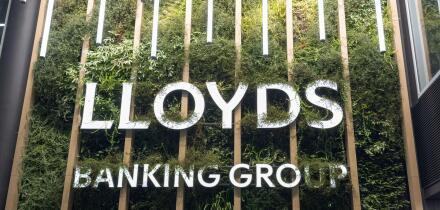The Labour Party swept to an overwhelming majority in the UK’s general election on Thursday, a result in line with many forecasts, calming market nerves ahead of another major European election this weekend.
Labour leader Kier Starmer is the new prime minister of the UK, ending 14 years of Conservative Party rule.
With almost all votes counted on Friday morning, Labour has won a dominant 412 seats in parliament, while the Conservatives suffered a major blow, winning only 121 seats — a loss of 250 places in parliament and the party's worst ever election loss.
The finer details of the results, however, were beyond the professional interests of market participants. “If Labour won 410 seats or 375 seats, it doesn’t change their ability to govern,” said Mark Byrne, head of IG credit syndicate at TD Securites in London. “The market is not going to jump to the second or third derivative of what happens to the Conservatives or what having [controversial Reform Party leader Nigel Farage, who has been elected as an MP at his eighth attempt] in parliament means. The market doesn’t price these in as there are too many unknowns.”
He added that “having this, the French election, non-farm payrolls and July 4 out of the way in one weekend means next week could be quite busy".
Some bankers are expecting up to €20bn in issuance across FIG and corporate bond markets next week.
"No one cared about the election because the polls were so overwhelming," said a senior corporate syndicate banker in London, but was forced to concede that "there's always that little bit of worry that there's going to be something unexpected. We can all sound so relaxed about it now because everything went as was expected, but if it hadn't and we'd got a hung parliament or something, it would've been bad news for the market."
Labour is 'inflationary'
The immediate reaction in the rates market was muted, with the yield on the 10 year Gilt yield falling by 2bp to 4.178% at market open Friday, according to Tradeweb.
“Futures pricing is unchanged — the market still expects the same number of [interest rate] cuts," said an SSA syndicate banker. "But to me, Labour is inflationary, and people will look into the numbers and pricing of their promises."
UK bank spreads shrugged at the the result. NatWest, which is still minority owned by the UK government, saw the I-spread on its €1bn 4.771% 5.75 year non-call 4.75 year flat at 84bp , while Lloyds saw the spread on its €1bn 3.875% eight year non-call seven year flat at 108bp over.
“Historically, the UK actually tends to do quite well under a Labour government so I wouldn’t say there is fear or anything," said one London-based FIG syndicate banker.
He went on to suggest that former prime minister Liz Truss’s loss of her parliementary seat “says it all really” and that “her legacy should keep [fiscal spending] in check”.
State ownership
For the corporate bond market, one change a Labour government brings is the prospect of renationalisation of certain industries.
The party in April pledged to renationalise most UK rail services.
Thames Water, the struggling UK water company, will probably not be renationalised under a Labour government, then shadow business secretary Jonathan Reynolds said in June.
Thames Water’s £300m 4.375% July 2034 bonds were 2bp wider at an I-spread of 363bp on Friday morning.
The FTSE 100 was 0.38% higher on market open.
“Weirdly, the UK, given what’s going on in the continent, is seen as now more politically stable,” said an equity capital markets banker in London. “I don’t think this will change anything, this was something people had been waiting for.”
He added that “there’s clearly an IPO window in September — I just don't think we're expecting that to be a particularly busy window based on the pipeline both in Europe and the UK."
The iTraxx Europe Main opened flat to Thursday's close at 53bp — 5bp tighter so far in July — and the Crossover was 1bp tighter at the open at 291bp.
Sterling did not move on the election result, which was "a clear signal of how a Labour majority had been fully priced in", said Francesco Pesole, FX strategist at ING. "What matters for sterling [FX], however, is mostly the implications for Bank of England policy. And for the moment, there are none."
Despite the lack of reaction in the UK markets in particular, there is no guarantee that borrowers will be looking to print bonds in sterling in the immediate aftermath of the election.
“Whether sterling supply follows is not necessarily obvious, but it’s nice to have the election of the way," said Byrne at TD. "Sterling always depends on valuations and valuations are improving. Spreads are tightening and the tone is improving. This doesn’t always translate into a pipeline, but the conditions for one are lining up.”
Your turn, France
The market has another major election to deal with this weekend. France heads to the polls for its second round of voting for its parliamentary elections, after the right wing National Rally surged in popularity in last Sunday’s first round.
The National Rally won 33.2% of the first round vote, versus 28% for the far left New Popular Front, and 22.4% for incumbent president Emmanuel Macron’s Ensemble alliance.
“Our interns started this week, and based on the papers they thought the UK election would be a big event — but we told them it’s all about the French elections," said a London-based syndicate banker. "Interns are a great way of assessing how far off the market focus can be from the real world.”
Parties on the centre and left in France have tried this week to stymie the rise of the right, encouraging tactical voting and pulling hundreds of candidates off the ballot in an attempt to not split the vote.
If the UK election result was predictable, France's could still end up anywhere.
“The best outcome will be a hung parliament,” said a senior syndicate banker in London. “If the right gets a majority, markets are going to move wider and there will be a lot of volatility. I’d expect things to pretty much shut down, and then you’ve got August right around the corner, so we might not see much issuance again until September.”
A Paris-based syndicate banker said his desk was more concerned about the outcome of US non-farm payrolls data than the UK general election results.
Looking ahead, he noted that the French election “obviously adds some volatility” and said his desk “don’t see anything pricing at the start [of next week].” But overall he was upbeat, “The outlook is looking better than it was a couple of weeks ago after the EU Parliament elections.”
That said, he conceded that the likelihood of a French bank coming to the market any time soon was “less certain”.







